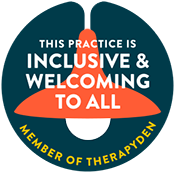Will My Narcissistic Parent Ever Change

By Brenda Stephens, Licensed Professional Clinical Counselor
If you grew up with a narcissistic parent, you probably spent most of your childhood doing emotional gymnastics to survive.
You tried to be:
- good enough
- helpful enough
- quiet enough
- impressive enough
You kept hoping that one day they would soften and finally see you.
Now they are older, maybe sick, maybe needing more help. They may be calling more, criticizing more, or playing the victim harder than ever.
And you are sitting there wondering:
- “Will they ever admit what happened?”
- “Will I ever get a real apology?”
- “Is it heartless to stop hoping they will change, especially now that they are aging?”
Here is the truth that lands heavy and freeing at the same time:
Narcissistic parents almost never become the loving, accountable adults you needed as a child.
In many cases, the narcissistic pattern feels even worse as they age.
That does not make you cruel.
It makes reality finally louder than fantasy.
Stay with me.
Narcissistic Parenting 101: It Was Not Just “Strict” Or “Old School”
When I talk about a narcissistic parent, I am not talking about a parent who lost their temper a few times, or who did not know how to talk about feelings.
I am talking about a long term pattern like:
- You were put in the “parent” role for their emotions
- They treated you like an extension, not a separate person
- They compared and competed with you instead of supporting you
- They cared more about image and reputation than your wellbeing
- They rewrote history and denied your reality whenever it suited them
In that kind of family, you did not get to be a child. You were an accessory, a therapist, a caretaker, a trophy, or a scapegoat.
Personality traits that rigid rarely disappear in old age. People can mellow around the edges. Some gain insight. But when someone has lived their entire life on a steady diet of entitlement, blame, and emotional manipulation, the odds of a late-in-life transformation are very low.
Your nervous system is not stupid.
If it feels like “same person, different stage of life,” it is probably right.
“They Were Different When I Was Little”… Or Were They?
A lot of adult children of narcissists tell me some version of:
- “She was fun when I was small.”
- “He worked hard and provided, but emotionally he was never there.”
- “There were good times. Maybe I am exaggerating.”
What often changes is not the parent.
What changes is how much you can see.
As a child:
- You normalized the chaos because it was all you knew.
- You believed what they told you about yourself.
- You blamed yourself for their reactions.
- You were dependent on them for food, shelter, and survival.
As an adult:
- You have more exposure to healthy families and other ways of living.
- You notice the lies, contradictions, and manipulation.
- You have your own children and can see how wrong it would be to treat them that way.
- You start to connect your anxiety, depression, or fawning directly to how you were parented.
It is not that they got “so much worse.”
It is that your clarity finally caught up.
And then, on top of that, aging pours gasoline on the pattern.
Why Narcissistic Parents Often Feel Worse As They Age
Aging is humbling for everyone. Bodies change, roles shift, people need more help.
For a narcissistic parent, that humility often feels like humiliation.
They might respond by:
- Doubling down on victimhood
Every health issue becomes a drama. Every boundary you set makes you “selfish” or “ungrateful.” - Escalating control
They micromanage visitation, guilt you about how often you call, or pit siblings and relatives against each other. - Rewriting history harder than ever
“I sacrificed everything for you.”
“You had a perfect childhood.”
“I never said that. You are too sensitive.” - Using age as a weapon
“I am old and I could die any day. You are killing me with your boundaries.”
“After everything I have done for you, this is how you treat me?”
From the outside, people might see a fragile older person who “means well.”
From the inside, you see the same entitlement, the same manipulations, now cloaked in frailty.
You are not imagining it, the pattern did not retire, it adapted
The Hope That Keeps You Stuck
Let’s name the hopes that quietly hold you hostage:
- “Maybe once they are older, they will realize what they did.”
- “Maybe when they see me as an adult, they will respect me.”
- “Maybe a health scare will wake them up.”
- “Maybe becoming a grandparent will change them.”
- “Maybe on their deathbed, I will finally get the apology.”
I want to say this gently and directly:
Waiting for a narcissistic parent to wake up and become the parent you needed is like waiting for them to adopt a whole new personality at the end of their life.
Can it happen? Rarely, in small ways.
Will it be complete, consistent, and emotionally safe? Almost never.
What usually happens instead:
- There might be a tearful “I know I wasn’t perfect” moment.
- They may use the language of regret without actually changing behavior.
- Any “apology” still circles back to their pain, their stress, their story.
You deserve more than crumbs of insight surrounded by decades of denial.
Releasing that hope is not betrayal, it’s emotional triage.
“But They Are Old. Isn’t It Cruel To Pull Back Now?”
This is where so many adult children get stuck.
Your compassion and loyalty are strengths. Narcissistic parents have used those strengths against you for years.
You hear:
- “Family sticks together.”
- “You only have one mother/father.”
- “When I am gone, you will regret this.”
Here is what I say to clients in this position:
- Caring about your own mental health is not cruelty.
- Protecting your children from the same patterns is not cruelty.
- Limiting access to someone who has repeatedly hurt you is not cruelty.
You can:
- Contribute to their care without being their emotional punching bag.
- Offer practical help in structured ways instead of open access to your nervous system.
- Decide that other relatives, paid caregivers, or facilities will handle what you cannot.
There is a huge range between “total cutoff” and “total self sacrifice.”
You are allowed to choose something that does not destroy you.
What Acceptance Actually Looks Like
Accepting that your parent is not going to change is not one big moment. It is a series of smaller, quieter decisions.
It might sound like:
- “My parent is who they are. I am done trying to get them to validate my childhood.”
- “I am allowed to decline phone calls when I am tired or vulnerable.”
- “I can offer a short visit instead of a full day.”
- “I can walk out or hang up if they become abusive.”
- “I will not sacrifice my kids’ emotional safety or my own boundaries just so my narcissistic parent can play ‘perfect grandparent’ for appearances.”
You are not cutting them off from love, you’re cutting them off from endless access to harm you.
How To Protect Yourself Around An Aging Narcissistic Parent
If we assume the personality is not going to fundamentally shift, the work becomes about you.
Here are some starting points:
1. Stop arguing about the past
They are not confused about what happened, they’re just fully invested in their version.
Use your energy to validate your own story:
- Journal
- Therapy
- Talking with safe siblings or relatives who get it
- Naming specific incidents without minimizing them
You do not need them to agree for your reality to be real.
2. Decide your role on purpose
Get honest with yourself:
- Do you want to be involved in their care at all?
- If yes, what kind of involvement can you tolerate without burning out or regressing?
- How much contact can your nervous system handle?
You are allowed to say:
- “I will handle paperwork, but not daily visits.”
- “I will visit once a month for an hour.”
- “I will not be their primary caregiver.”
- “I am not willing to be involved at all.”
Your duty is not to be destroyed in the process.
3. Use structure to protect yourself
If you choose contact, make it more contained:
- Time limited visits
- Meeting in neutral places instead of their home
- Short phone calls instead of long, spiraling conversations
- Written communication for logistics
If they escalate, manipulate, or attack, you end the interaction. Not as a punishment but as a safety policy.
4. Protect your children and younger relatives
You may feel tempted to think, “They are older; maybe they will be a sweet grandparent.”
Sometimes yes. Most times, no.
Red flags to watch for:
- Triangulating grandchildren against you
- Telling distorted stories that make them the hero and you the problem
- Ignoring your parenting rules or boundaries
- Using guilt or favoritism with kids just like they did with you
You are allowed to limit or supervise contact and you are allowed to say, “No, this is not healthy for my child.”
5. Keep building a life that is not centered around them
Narcissistic parents train you from birth to revolve around their moods, needs, and crises.
As an adult, the shift is:
- More time with people who see you clearly
- More energy in your own healing, work, and joy
- Less mental real estate dedicated to “What will they think?” and “How do I keep them from being upset?”
Their aging does not have to be the main plot of your life.
The Fact That They Never Changed Does Not Mean There Is Anything Wrong With YOU!
Let’s clear this up:
- You did not fail because your parent never woke up.
- You did not fail because they still play the victim in every story.
- You did not fail because your boundaries did not inspire them to become a new person.
They made choices and you adapted to survive.
Your symptoms now are not proof you are weak. They are proof that your body has been running a marathon in an emotional war zone for decades.
Your healing is not dependent on them suddenly understanding the damage.
Healing happens when you stop giving them the power to keep repeating it.
Where Your Hope Actually Belongs Now
You are allowed to stop hoping for:
- A perfect apology
- A rewritten childhood
- A soft, wise elder who finally “gets it”
You can start placing hope in things you actually have influence over:
- Your capacity to set and hold limits
- Your ability to create safety for yourself and your kids
- Your right to step out of the role you were assigned and into who you really are
That is not you being cold it’s you finally using your voice.
You Do Not Have To Untangle This Alone
If reading this stirs up grief, anger, or guilt, that is normal.
Some part of you has waited your whole life for someone to say, “You are not crazy. This really is what it feels like.”
If you want support that understands narcissistic family systems and the specific pain of aging narcissistic parents, you can:
- Work with us
Ready to stop people pleasing and start healing. Book an appointment or join a group.
Therapy, groups, and intensives
Contact & waitlist - Trauma Toolbox app
Guided grounding, micro-practices, body resets, and crisis-calming audio in under five minutes.
Get the app - Podcast: Two Queens and a Joker
Real talk about recovery, parenting, and rebuilding a life you actually want.
Listen on Spotify
Listen on Apple Podcasts
Your parent will likely never change but you still can.
You can change how much access they have to your time, your mind, and your future.
That is where your real power is, and it is still yours, no matter how old they are.






